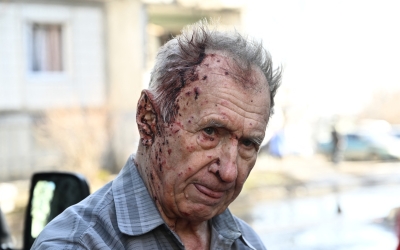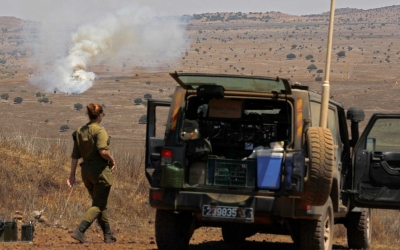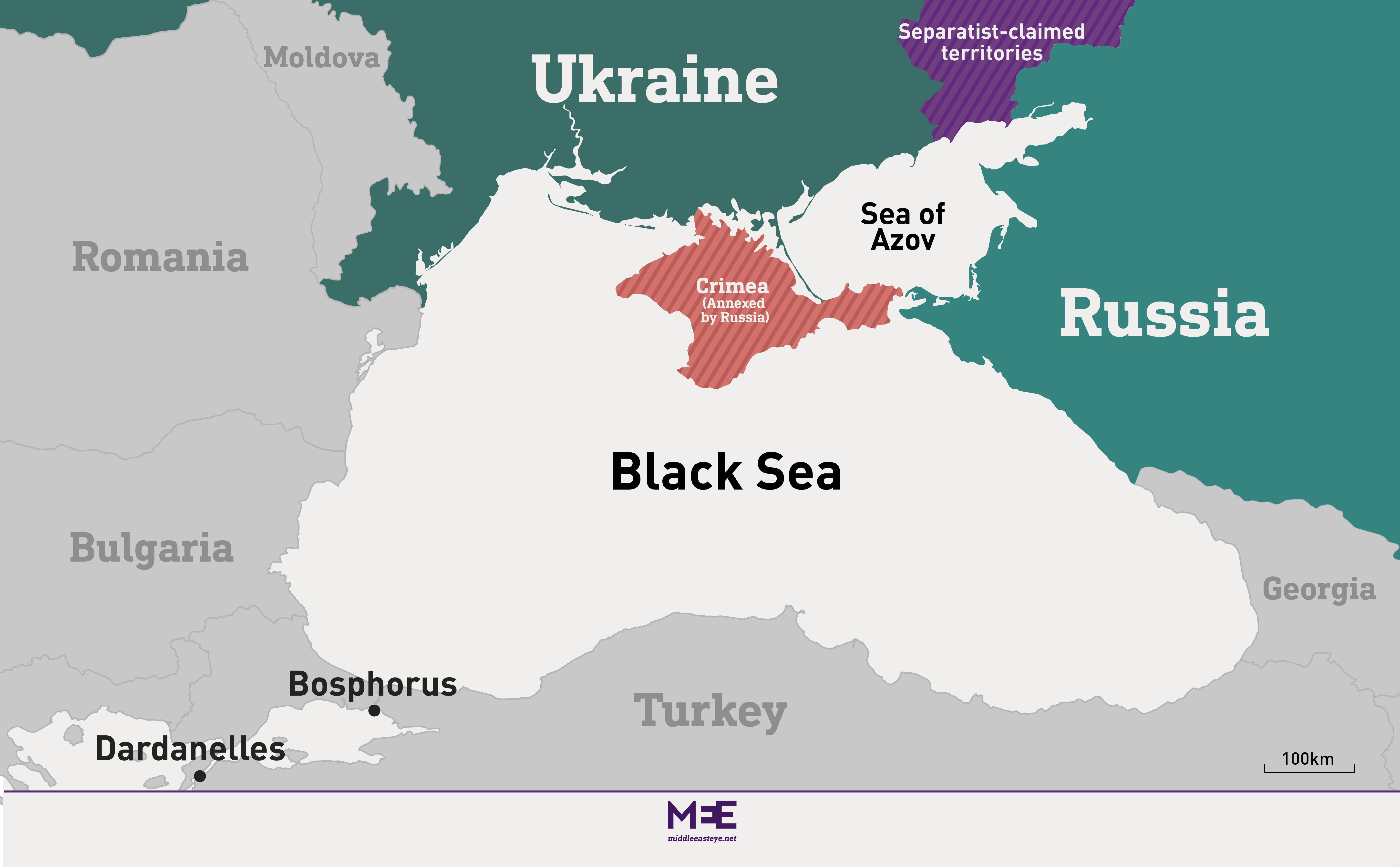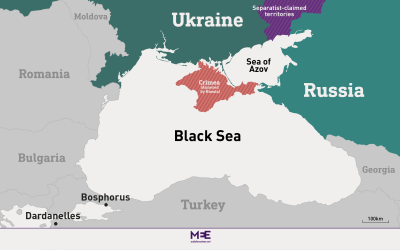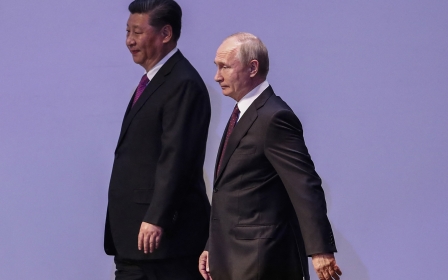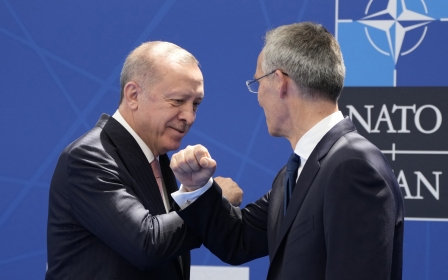Russia-Ukraine war: Seven ways the invasion will affect the Middle East
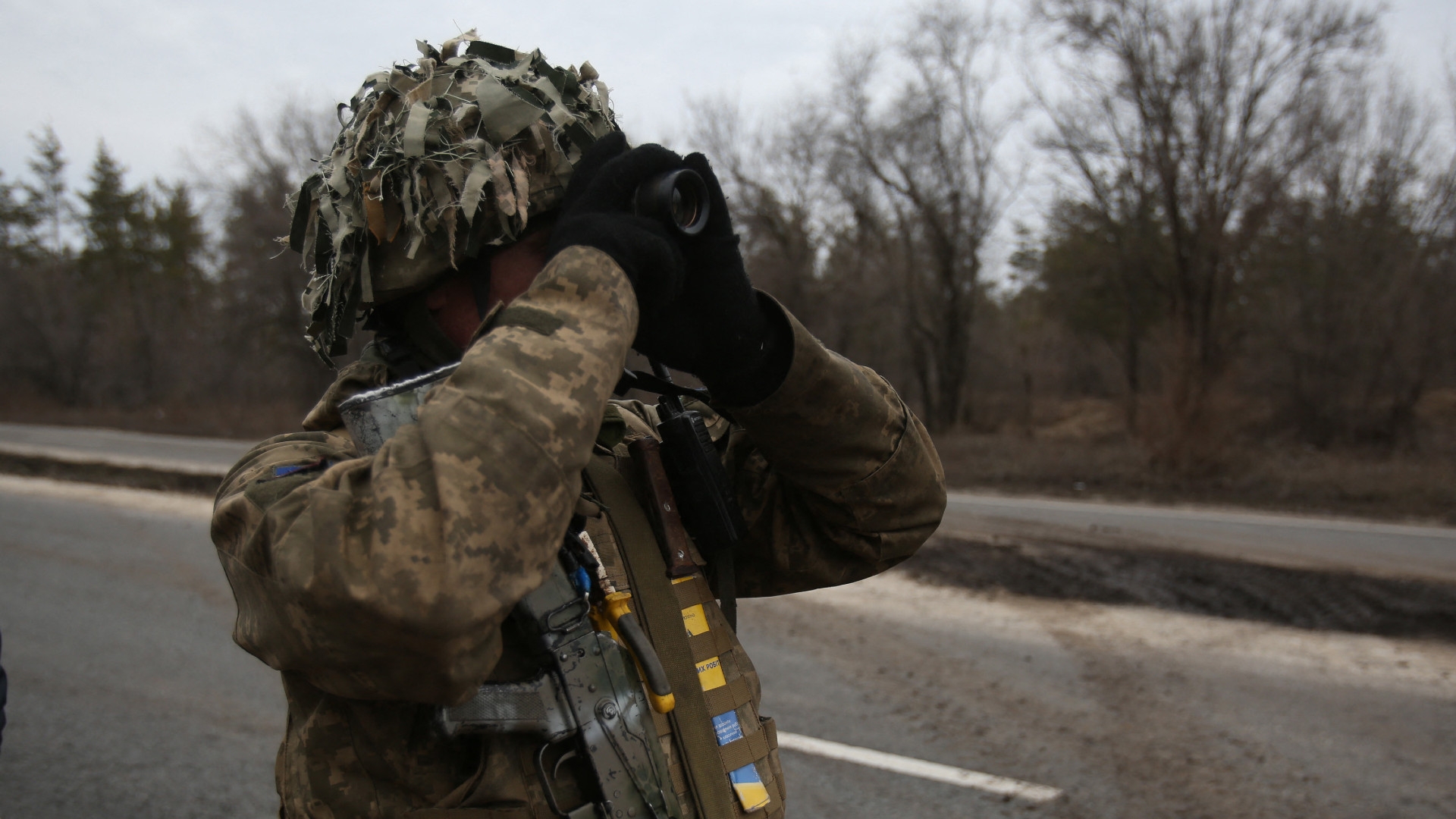
As the conflict escalates following Russia's full-scale invasion of Ukraine on Thursday, many Middle Eastern countries, which have relationships with the US, Russia and Ukraine, may reluctantly be forced to pick a side.
But before that happens, there are significant ways the fighting will impact the region. From energy prices to sanctions, wheat imports to tourism, here's how the Russian invasion of Ukraine will affect the Middle East:
Energy
Saudi Arabia, the world's top exporter of crude oil, and Qatar, one of the leading liquified natural gas (LNG) exporters, have seen high demand for their energy supplies as tensions escalate in eastern Europe - and the invasion has only turned up the notch.
On Thursday, energy prices surged with oil jumping to more than $105 per barrel and a key natural gas benchmark for northwest Europe rising by 30 percent.
Officials in the US and Europe had hoped that Qatar could redirect some gas exports to Europe to ease energy strains. Others have urged Saudi Arabia to pump crude oil faster and increase its production capacity.
But Qatar's energy minister has warned that no country can replace Russian gas supplies to Europe with liquified natural gas (LNG). And Saudi Arabia, a member of the OPEC+ alliance of oil-producing countries, has shown no interest in pumping more oil.
So this could be an opportunity for both countries and other Gulf energy producers to highlight how critical they are to Europe and the US, the Middle East Institute’s Karen Young told AFP.
"This may be a moment in which they have leverage to argue their importance in the global economy," Young said.
Sanctions
Middle Eastern companies operating in the US, British and European markets will be bound to comply with sanctions which were imposed on Russia this week - and even more severe sanctions on the way.
If large Russian state banks are targeted, the impact could be considerable. Russia's Sberbank, for example, where half of all Russians have an account, set up an office in Abu Dhabi recently and signed a partnership with Mubadala Investment Company, Abu Dhabi's investment arm, in 2020.
The head of the bank's Sberinvest Middle East branch told The National at the time that many of the bank's companies had been investing in the region.
Israeli officials meanwhile have expressed concerns that US sanctions against Russia could harm Israel's security interests in Syria where it is coordinating operations with Moscow.
Russia has so far not stood in their way. But that may change now Israel has sided with its US allies in condemning the Russian invasion.
Wheat
Ukraine and Russia provide much of the world's wheat, and countries across the Middle East are likely to be hit with price rises if supplies are disrupted.
As the world's largest importer of wheat, Egypt would likely be severely affected. The most populous Arab country - home to 102 million - imported 12.5m tonnes of wheat in 2020-21, with almost 85 percent coming from Russia and Ukraine.
"Egypt will be deeply affected in case the war erupts between Russia and Ukraine," Hesham Abuldahab, a member of the grains section at the Cairo Chamber of Commerce, told Middle East Eye. "Most of our wheat imports come from these two countries."
Algeria, Tunisia and Libya which are also significant wheat importers are expected to be impacted as well.
Bosphorus and the Black Sea
The war will have implications for the Black Sea, too. Most immediately, it may impact what ships will be allowed to transit between the sea and the Mediterranean.
Under a 1936 convention, Turkey has control over the Bosphorus and Dardenelles through which vessels must pass to move between the two seas.
The convention also gives Turkey power to close the straits to all foreign warships during wartime.
Hours after Russia launched attacks on Ukraine on Thursday, Kyiv asked Turkey to close the straits to Russian ships.
So far, President Recep Tayyip Erdogan has said that Turkey will do whatever is necessary as a Nato ally if Russia invades, but hasn’t elaborated on whether that includes blocking passage of its warships.
Tourism
The escalating war may see tourism revenue dry up and direct flights cancelled for some of the most popular Russian tourist spots in the Middle East.
Turkish and Egyptian beach resorts had only just started attracting Russian sunbathers again. Last June, the day after Moscow dropped Covid-19 flight restrictions, 44 plane-loads of Russian tourists arrived in the beachside city of Antalya.
Egypt's Red Sea resorts, too, began hosting Russian tourists again last year when flights were resumed to Sharm el-Sheikh and Hurghada. Travel had been suspended to the popular destinations after a Russian passenger plane crashed in Sinai in October 2015, killing 224 people, in an attack claimed by the so-called Islamic State.
Prior to the attack, Russia sent more tourists to Egypt than any other country. More than three million tourists visited in 2014, generating $2.5bn for Egypt, more than a third of its annual tourism revenue.
Dubai also earns big money from Russian tourists, at least 374,000 of whom visited in 2021.
Russian tourists were expected to generate roughly $1.2bn for the Gulf by 2023, according to data published ahead of the trade fair Arabian Travel Market 2020.
Students
Ukraine is home to thousands of students from across the Middle East and North Africa, many of whom were waiting to be evacuated when Russian invaded on Thursday.
Morocco has the second-largest foreign student contingent in Ukraine, with 8,000 students, according to the Ukrainian education ministry.
Egypt has 3,500 students there, while a significant number of students from Lebanon, Iraq and Palestine also attend Ukrainian universities.
Before the conflict escalated, families with students in Ukraine held protests in Egypt, Morocco and Lebanon, calling on their governments to repatriate their relatives.
Libya
Another country likely to feel the tremors of the war to the east is Libya.
Much of the West supports the UN-recognised Government of National Accord, while Russia supports eastern commander Khalifa Haftar’s Libyan National Army. Russian mercenaries from the Wagner Group have taken a leading role in combat in the country in recent years.
Elections in Libya were called off in December amid multiple disputes, leaving the internationally backed peace process in chaos and the fate of the country's interim government in doubt.
With Russia and much of the West now at odds over Ukraine, cooperating to help stabilise Libya will likely become even less of a priority.
This article is available in French on Middle East Eye French edition.
Middle East Eye propose une couverture et une analyse indépendantes et incomparables du Moyen-Orient, de l’Afrique du Nord et d’autres régions du monde. Pour en savoir plus sur la reprise de ce contenu et les frais qui s’appliquent, veuillez remplir ce formulaire [en anglais]. Pour en savoir plus sur MEE, cliquez ici [en anglais].


